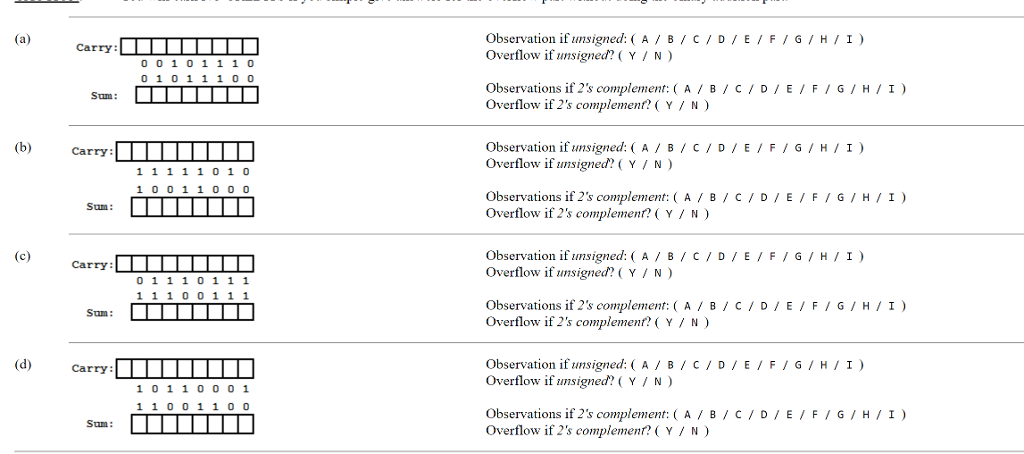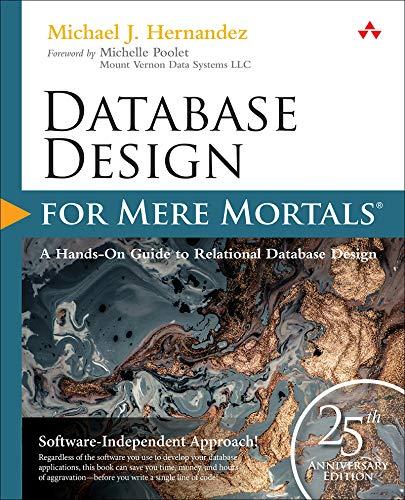Question
Show how you would add the two 8-bit binary numbers by filling in each of the blank boxes with a 0 or 1. NOTE1: Addition
| Show how you would add the two 8-bit binary numbers by filling in each of the blank boxes with a 0 or 1. NOTE1: Addition of 2's complement numbers is done just like the addition of unsigned whole numbers, so you only need to show each addition once. NOTE2: There are 9 blank boxes for the Carry bits and 8 blank boxes for the Sum bits. CAUTION: Every blank box should be filled with a 0 or 1; if you leave any boxes blank, your answer will be taken as incomplete. |
| - | Circle one observation from the list below that is applicable and useful to help determine whether overflow has occurred, if the numbers are unsigned whole numbers and only 8 bits are available for holding the result. CAUTION: There will be penalty for additional observations circled that are not applicable/helpful. |
| - | Circle Y or N to indicate your inference on whether overflow has occurred or not (if the numbers are unsigned whole numbers and only 8 bits are available for holding the result) based on the circled observation(s). |
| - | Circle two observations from the list below either of which is applicable and useful to help determine whether overflow has occurred, if the numbers are 2's complement numbers and only 8 bits are available for holding the result. CAUTION: There will be penalty for observations circled that are not applicable/helpful. |
| - | Circle Y or N to indicate your inference on whether overflow has occurred or not (if the numbers are 2's complement numbers and only 8 bits are available for holding the result) based on the circled observation(s). |
| List of observations (note that each is in terms of the state(s) of certain bit(s) in 1 or 2 positions -- something that can be easily made in hardware): (A) Carry-out is 0 when bits at most-significant-bit position are added. (B) Carry-out is 1 when bits at most-significant-bit position are added. (C) Addends have opposite signs. (D) Addends are both positive, sum is positive. (E) Addends are both positive, sum is negative. (F) Addends are both negative, sum is positive. (G) Addends are both negative, sum is negative. (H) Carry-in and carry-out at most-significant-bit position are the same. (I) Carry-in and carry-out at most-significant-bit position are not the same.
| ||||||
Step by Step Solution
There are 3 Steps involved in it
Step: 1

Get Instant Access to Expert-Tailored Solutions
See step-by-step solutions with expert insights and AI powered tools for academic success
Step: 2

Step: 3

Ace Your Homework with AI
Get the answers you need in no time with our AI-driven, step-by-step assistance
Get Started



